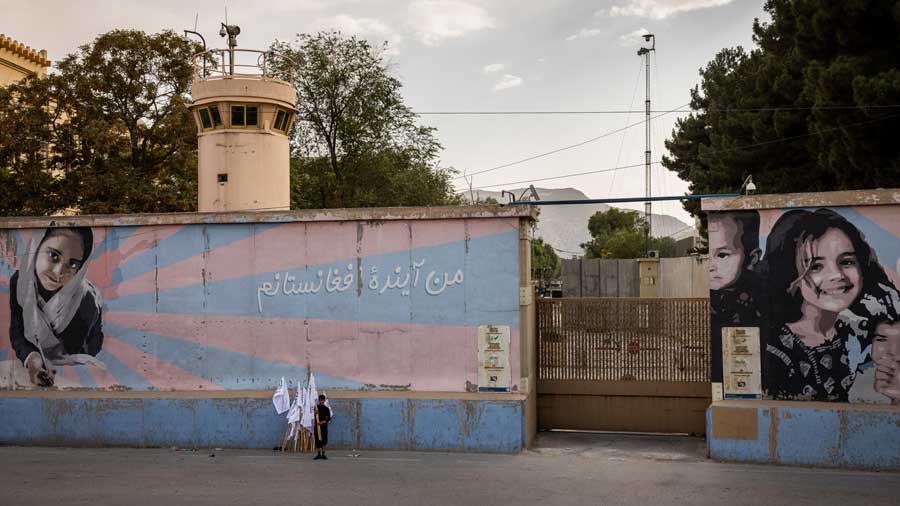Having failed to midwife the birth of a robust, inclusive democracy in Afghanistan, the United States of America has now retreated from that war-scarred land after two decades, leaving the country in a far more chaotic state. The mess in Afghanistan has numerous manifestations. A humongous humanitarian crisis is unfolding, with countless Afghans battling death, hunger and displacement. The shadow of reprisal hangs heavy over the nation as the Taliban, Afghanistan’s new masters, conduct a witch-hunt against their opponents in spite of an announcement of granting general amnesty. Reports of extrajudicial killings, abductions and intimidation of civilians — women, journalists, members and employees of the former regime and, as usual, ethnic minorities — are not uncommon. Worryingly, the spectre of terrorism — this has ramifications for India’s borders — seems to have mutated, as was evident from the chilling attack on Kabul airport by the Islamic State-Khorasan. Splinter fundamentalist outfits with shadowy patrons that remain opposed to the Taliban could pose a long-term threat to the stability of the region. Other local formations, such as those resisting the Taliban in Panjshir, are unlikely to settle for a peaceful resolution either. These divisions in Afghanistan are being mirrored in the deep chasms in the international fraternity. Russia, China and Pakistan have moved quickly to press for international assistance — recognition? — for Afghanistan’s new overlords, while India and the United States of America are among several democratic countries that have desisted from reaching out the hand of cooperation just yet. These fissures in the coalition of global nations would, undoubtedly, affect Afghanistan’s ground realities adversely. The challenge, therefore, is for stakeholders, including competitors like India and Pakistan and the US and China, to arrive at a consensus to usher in stability in the country.
This is easier said than done given the conflicting geo-strategic interests of the stakeholders. Yet, the signs of a thaw between the Taliban and the international fraternity cannot be ruled out entirely. Recently, the United Nations security council dropped a reference to the Taliban from a statement that called on Afghan groups to renounce terror. India was a signatory to the statement. This outreach can be beneficial mutually: the Taliban needs the comity of nations for legitimacy and to rebuild Afghanistan while the fledgling camaraderie could open up newer avenues of cooperation for the West and the Taliban to hunt down common scourges such as the IS-K. Prioritizing peace and people’s welfare on the part of Afghanistan’s rulers and the world would be instrumental in ushering in new equations.











